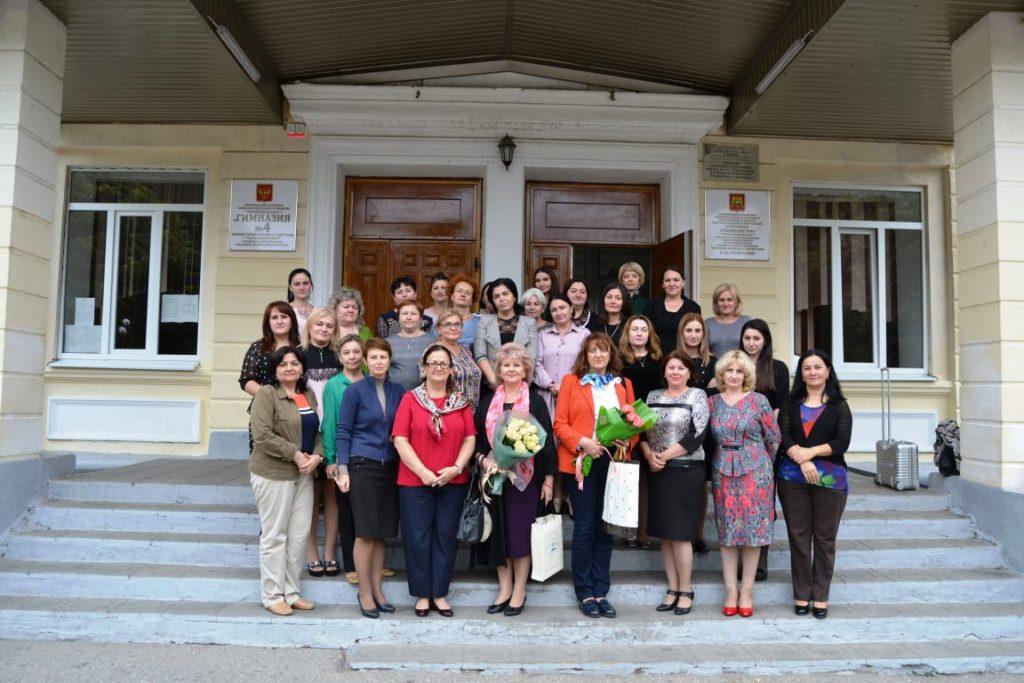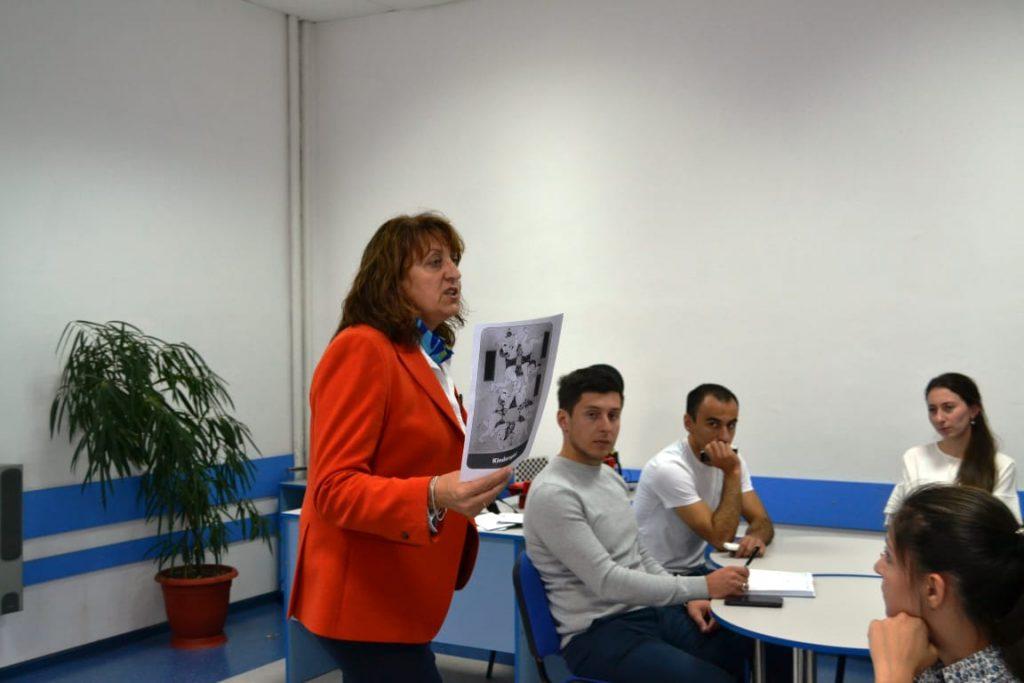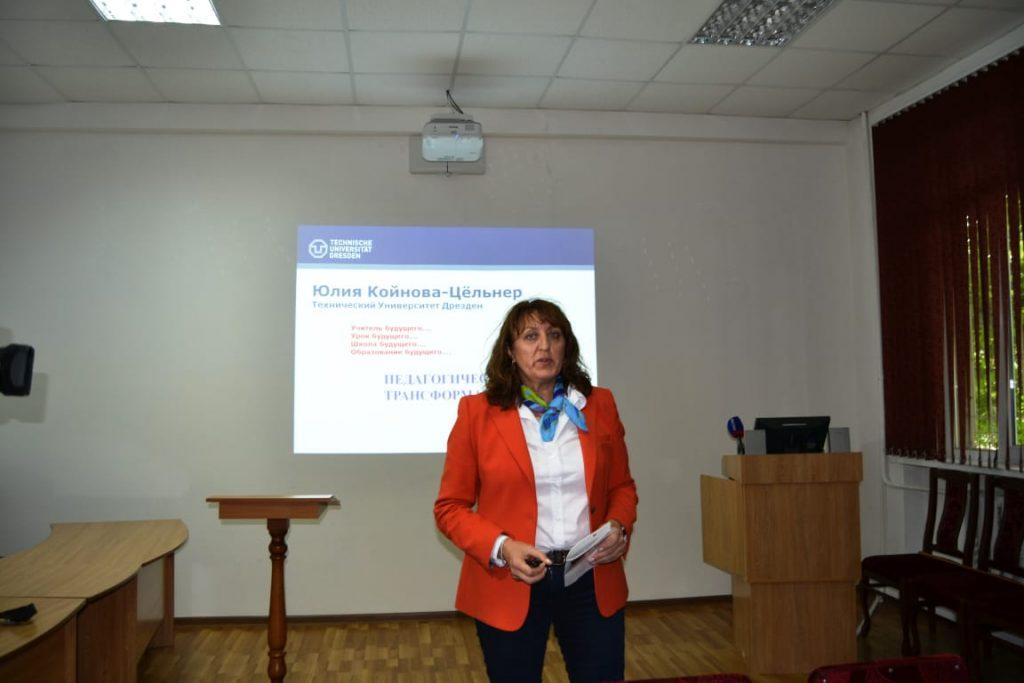New Methods Of School Education

Within the framework of the seminar “Current trends in the development of modern didactics” held in KBSU, organized by Ph.D. and the researcher of faculty of pedagogy at the Technical University of Dresden (Germany) — Julia Koinova-Zellner went a meeting with the pedagogical team of Gymnasium No. 4 in Nalchik.
Addressing the teachers, the director of the Institute of Pedagogy, Psychology and Physical Education and Sports of the KBSU, Ph.D. in Psychology Olga Mikhailenko thanked them for their hard, fertile work, patience and competence.

“Students at the gymnasium show good knowledge at the subject Olympiads held at the university. I wish that later they would choose KBSU as their place of further study,” — Olga Ivanovna noted. Introducing the audience with a teacher from Germany, the director of the Institute for Physics and Education and Social Development focused on the relevance of teaching future teachers innovative approaches to didactics.
In her turn, Julia Koinova-Zellner stressed that it is important not to give up the old school, but to take the best from it. She spoke about the key educational competencies in the German school, which are aimed at developing the ability of children to independently acquire knowledge, plan, search, highlight the main thing, listen to another, discuss, give their arguments. The German teacher noted that this is effectively achieved through cooperation and work in a non-formal context.

As an example, after the plenary session in the polyvalent gymnasium an interactive game took place, demonstrating the cooperative form of teaching in the classroom.
“At the lesson, you should not create a vertical, i.e. work only with strong students, giving them more and more new tasks. It is necessary to work horizontally, i.e. with all. And this happens when the strong help those who are weaker, as a team,” — claims Julia Koinova-Zellner.
After the session, the teachers’ team of the gymnasium thanked the German guest for an interesting and informative meeting.

